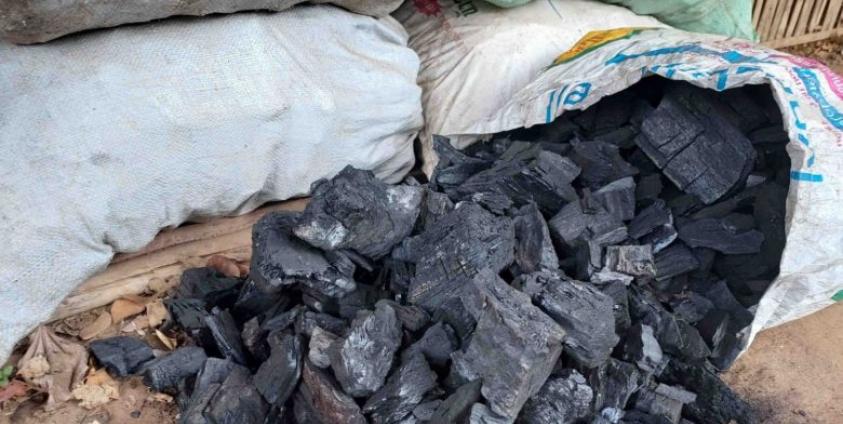Daily electricity cuts in Hpa-an, the capital of Karen State, have forced residents to turn to charcoal for their cooking needs. Local consumers and sellers said the price of charcoal has now increased due to the high demands.
Charcoal sellers said city residents and villagers that had access to electricity have been experiencing regular power outages, with most ordinary people having to rely on charcoal for cooking, charcoal traders are facing increased demands for charcoal.
A charcoal trader in Hpa-an told Karen News.
“Now, the electricity supply is not running regularly. If there is no electricity, we rely on charcoal for cooking. In the past, we did not sell much charcoal, but now many people need to buy charcoal as they can’t rely on the electricity supply. When other commodity prices go up, so does charcoal. Charcoal prices have risen sharply. We get our charcoal from Kyarinn Seikgyi, but as the [security] road situation is not good, we can’t get enough charcoal delivered.”
During power outages, people who can afford it, use generators and gas-fuel for cooking. But the price of gasoline and gas has also risen, and most ordinary people are increasingly turning to charcoal.
A local run charcoal company in Kawkareik Township explained to Karen News; “Charcoal prices have risen not only in towns, but [remote] areas have also seen price hikes. Now it is hard to buy wood to make charcoal. We need to transport it and it costs more fuel for the vehicles. The price of fuel has gone up, and the cost of transportation also has gone up. In our area, a bag of charcoal that used to sell for 5,000 kyats has now increased to 7,000 kyats.”.
In Hpa-an, the price of charcoal was 400 kyats per viss, but now it is over 500 kyat, close to 600 kyats. A bag of charcoal that previously sold at 4,500 kyats, now costs 6,000 kyats or more.
Charcoal prices have risen in many other parts of Karen State. In some areas where charcoal is produced, fighting in the area caused difficulties to trade and transport charcoal. There is now less wood available for charcoal due to the increased cost of timber – the number of charcoal makers is also on the decline.
Even in areas where electricity is available, the power supply is only being provided for a limited time in different places. This has resulted in frequent power outages. Residents of Kawkareik and Hpa-an Town told Karen News despite the electricity cuts, their bills have not decreased and are even higher than before.
A Hpa-an resident told Karen News they are spending more money on electricity.
“When the electricity goes off while we’re cooking, we’ve had to throw out the spoiled rice. When I sew clothes, I rely on electricity, as it is not reliable I have to use the generator. The price of fuel for generators is high, so everything is now expensive. We have to spend more money for less electricity.”
An announcement made by the Ministry of Electric Power, power plants in the national grid have reduced production in some areas. Households are currently being urged to use low-power LED light bulbs, to replace normal light bulbs and to turn off unnecessary lights to save power usage.








